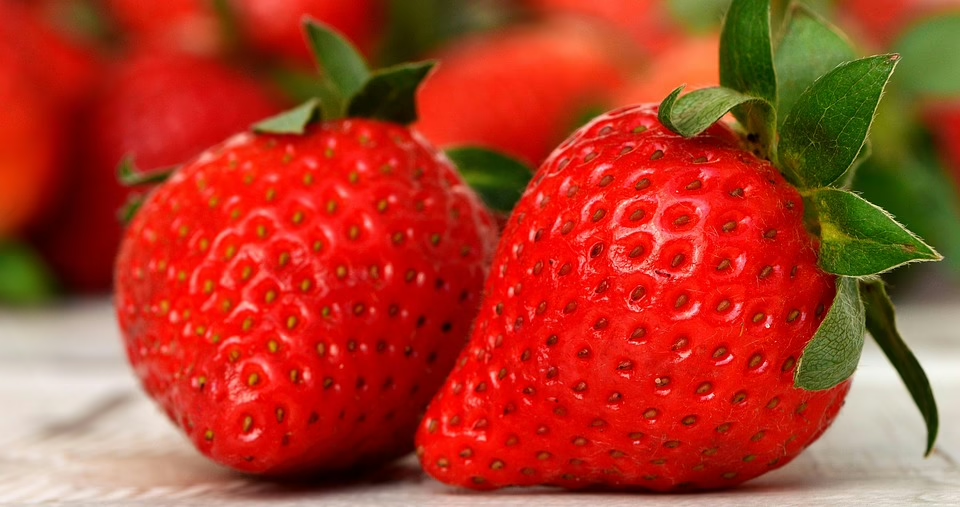Shake Off the Blues: How Vitamin D-Rich Foods Can Elevate Your Mood
Introduction
In today’s fast-paced world, mental health has garnered increased attention, with researchers exploring various factors that influence our mood and emotional well-being. Among the many elements that can impact mental health, nutrition—specifically, the consumption of foods rich in Vitamin D—has emerged as a pivotal area of interest. This article delves into the intricate relationship between Vitamin D and mood regulation, while also offering practical insights on how to incorporate Vitamin D-rich foods into your diet to lift your spirits.
The Importance of Vitamin D
Vitamin D, often called the “sunshine vitamin,” is a fat-soluble vitamin that plays an essential role in various bodily functions. While it is well-known for its role in promoting bone health by aiding calcium absorption, recent studies have highlighted its significance in mental well-being. The body produces Vitamin D mainly through sun exposure, but dietary sources are equally vital, especially for individuals with limited sunlight exposure.
What Does Vitamin D Do?
-
Bone Health: As mentioned, Vitamin D is crucial for calcium metabolism, which directly influences bone density and overall skeletal health.
-
Immune Function: Vitamin D supports the immune system, helping the body fend off infections and diseases.
-
Mood Regulation: Research suggests that Vitamin D receptors are present in areas of the brain that regulate mood and behavior, implying a direct association between Vitamin D levels and mental health outcomes.
The Link Between Vitamin D and Mental Health
Several studies have established a connection between low Vitamin D levels and an increased risk of mood disorders, including depression and anxiety. For instance, a systematic review conducted by the Journal of Clinical Psychiatry found that individuals with lower levels of Vitamin D are more susceptible to depressive symptoms.
Mechanisms of Action
The relationship between Vitamin D and mood can be attributed to various biological mechanisms:
- Neurotransmitter Regulation: Vitamin D plays a role in the synthesis of serotonin, a neurotransmitter known as the “happy hormone.” Higher serotonin levels are associated with improved mood and emotional stability.
- Inflammation Reduction: Chronic inflammation is often linked to mood disorders. Vitamin D has anti-inflammatory properties that may help alleviate these conditions.
- Brain Development: Vitamin D is crucial for brain health, particularly during development stages in childhood. Adequate levels contribute to cognitive function and emotional well-being.
Vitamin D Deficiency: A Common Issue
Despite its importance, Vitamin D deficiency is alarmingly common. Factors contributing to this deficiency include:
- Geographic Location: Individuals living in northern latitudes or areas with limited sunlight exposure are at higher risk.
- Skin Pigmentation: Melanin reduces Vitamin D synthesis in the skin, making darker-skinned individuals more susceptible to deficiency.
- Indoor Lifestyles: Sedentary behaviors and increased screen time often lead to less outdoor activity, reducing sun exposure.
Signs of Deficiency
Symptoms of Vitamin D deficiency can manifest as fatigue, muscle weakness, and in severe cases, depression. If you suspect a deficiency, it is important to consult a healthcare professional for testing and potentially supplementation.
Mood-Boosting Foods Rich in Vitamin D
To enhance mood and overall mental well-being, incorporating Vitamin D-rich foods into your diet is a proactive approach. Here are some of the top foods to consider:
1. Fatty Fish
Fatty fish such as salmon, mackerel, and sardines are among the best natural sources of Vitamin D. A single serving can provide a significant portion of the daily recommended intake.
2. Fortified Dairy Products
Many milk and yogurt brands are fortified with Vitamin D, making them an excellent dietary option. Opting for fortified products can help ensure adequate intake.
3. Eggs
Egg yolks contain Vitamin D, along with other essential nutrients. Including eggs in your breakfast can be both satisfying and mood-enhancing.
4. Mushrooms
Certain types of mushrooms, especially those exposed to UV light, can become good sources of Vitamin D. Varieties such as maitake and UV-exposed portobello mushrooms are particularly beneficial.
5. Fortified Foods
Several food products such as cereals, orange juice, and plant-based milk alternatives are often fortified with Vitamin D. Checking labels can help you identify those fortified options.
Practical Tips for Incorporating Vitamin D-Rich Foods
To effectively boost your Vitamin D intake through diet, consider the following strategies:
-
Plan Your Meals: Create weekly meal plans that incorporate Vitamin D-rich foods. Aim for varied sources to keep meals interesting.
-
Opt for Snacks: Choose snacks like yogurt, cheese, or fortified smoothies to increase your daily intake of Vitamin D.
-
Cook with Mushrooms: Add mushrooms to stir-fries, salads, or omelets to reap their benefits.
-
Choose the Right Fish: Try to consume fatty fish at least twice a week. Whether grilled, baked, or added to salads, the versatility of fish is a significant advantage.
The Role of Supplements
While obtaining Vitamin D through food and sunlight is ideal, some individuals may require supplements, particularly those with higher risks of deficiency.
When to Consider Supplements
-
Limited Sun Exposure: If you live in an area with long winters or have a lifestyle that limits outdoor time, you may benefit from supplements.
-
Health Conditions: Certain medical conditions or medications may impair Vitamin D absorption, making supplementation necessary.
Choosing a Supplement
When selecting a Vitamin D supplement, consider the following:
-
Form: Vitamin D3 (cholecalciferol) is generally recommended over D2 (ergocalciferol), as it is more effective in raising blood levels of Vitamin D.
-
Dosage: Consult with a healthcare professional to determine the appropriate dosage based on your needs.
Conclusion
The relationship between Vitamin D and mood is a fascinating area of research that underscores the importance of nutrition in mental health. By incorporating Vitamin D-rich foods into your diet, you can not only support your physical health but also enhance your emotional well-being. Whether through fatty fish, fortified dairy products, or mushrooms, there are various delicious ways to ensure adequate Vitamin D intake.
In a world where mental health challenges are increasingly prevalent, making mindful dietary choices can be one of the simplest yet effective strategies for shaking off the blues and fostering a brighter, more resilient mood.
References
[1] Journal of Clinical Psychiatry. (2021). “Vitamin D Deficiency and Depression: A Systematic Review.” [2] Holick, M. F. (2011). “Vitamin D: A D-Lightful Health Perspective.” Journal of Investigative Medicine. [3] Li, Y., et al. (2020). “Vitamin D and Mental Health: An Overview of Current Evidence.” Nutrition Reviews. [4] Aloia, J. F. (2016). “Vitamin D and the Immune System: A Review.” World Journal of Clinical Cases. [5] National Institutes of Health (NIH). (2020). “Vitamin D Fact Sheet.”The article above discusses the role of Vitamin D in mood regulation, linking diet to mental health, with practical suggestions for dietary changes. For further reading and up-to-date information, exploring articles from peer-reviewed journals is recommended.


























Add Comment